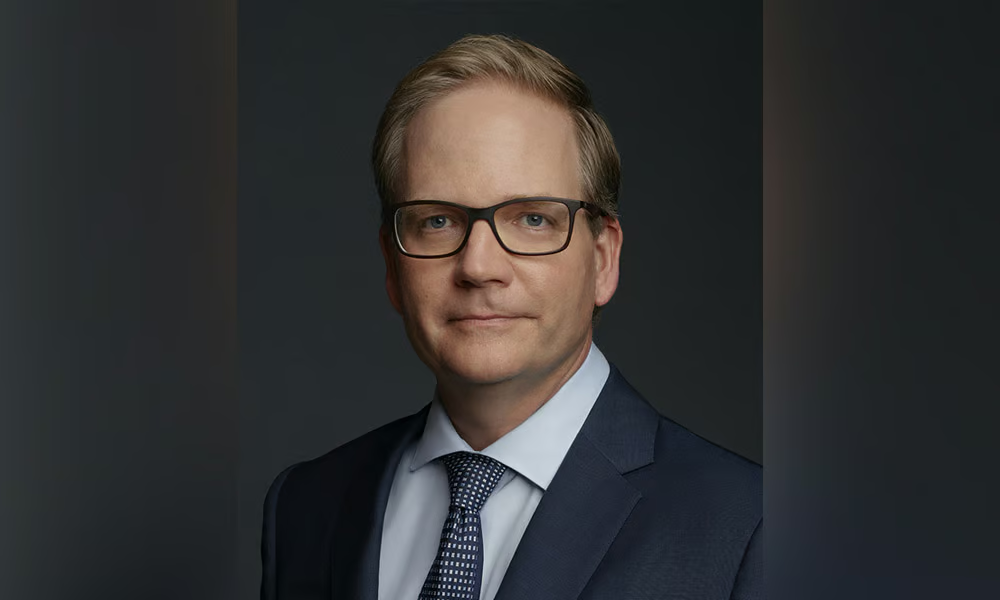Retirement decisions are changing: here’s how to facilitate client discussions for them

Edward Jones Canada’s third study on retirement with its partner Age Wave is arming its financial advisors to help them better prepare their clients for how retirement is changing – but other advisors can also learn from it to help their clients.
“This helps us really have the pulse of this evolving definition of retirement,” David Gunn, the president of Edward Jones, told Wealth Professional. “It’s not just to benefit us and our clients, advisors, and branch teams. We’ll make it available across Canada so it helps Canadians in general.”
This is the third retirement study that Edward Jones has done in as many years, but it builds on the previous ones in painting a new picture of retirement. The study, which advisors can get from Edward Jones, showed people are no longer just focused on rest and relaxation in retirement. They’re actually interested in Edward Jones’ four pillars – health, family, purpose, and finance.
“What we’re seeing through this study is that today’s retirees have really embraced overcoming a lot of what the study called curveballs, cannon balls, and windfalls, which is an interesting term,” he said. “But 85% of millennials agree that applying what retirees are learning right now would be helpful to them. So, millennials seem to recognize that retirees are going through a lot right now with respect to retirement plans and they want to learn from them. That’s a really good finding!”
Gunn said retirees also provided some advice through the study. They recommended that, given what they’ve recently experienced with the unexpected rise in inflation, people face the financial challenges head on. But, they noted they should also recognize that saving for retirement is only part of the puzzle. The biggest challenge is figuring out a retirement budget.
The retirees in the study also suggested people test-drive their retirement activities before retiring. They can then find ways to give back to the community and stay physically and mentally active.
“That’s one that our financial advisors are actually helping clients really dig deeply into,” said Gunn, “and we’re helping our advisors with the words of how to have these conversations with their clients about test-driving activities before they retire. That was a big finding!”
The retirees in the study also suggested people consider working in retirement, even if it’s not financially necessary. It can improve their quality of life in every pillar – by helping them keep an active mind and maintaining a strong sense of purpose, which they noted is important to them.
The fourth result that Gunn found interesting was that retirees were learning from the younger generations, especially about how they can be more frugal and leverage technology.
The study also showed that 76% of all respondents believed the younger generation would have to work longer than their parents’ generation to have a financially secure retirement. “That’s a big number,” said Gunn, “but 84% of millennials figured they’d need to work longer than their parents.”
One of the silver linings that the study showed was that thriving retirees are really redefining their retirement success by making resilient choices. They are showing a lot of confidence in their ability to make those choices, many of which involve trade-offs and adjustments.
“92% of retirees said that preparation, flexibility, and willingness to adapt were keys to success in retirement,” said Gunn. “So, they’re making course corrections in all four pillars of health, family, purpose, and finance.”
They are, for instance, choosing healthier diets, doing regular exercise, and finding mental stimulation. They’re spending more quality time with family and less in unhealthy relationships. They’re pushing towards “their why” and figuring out what they’re passionate to try now. They’re also expanding their social circle and seeing old friends they haven’t met in awhile, which he noted has been particularly noticeable since the pandemic.
Edward Jones has produced a five-page executive summary of the 70-page study, but already rolled out the results to its branch teams and built the key components into its advisor training. Gunn said even veteran advisors are finding the data valuable for prompting discussions with clients about things like purpose and unhealthy habits.
“It’s amazing. It’s like having a life coach, in many cases, and not just a financial advisor,” he said, noting that facilitating such discussions is a priority for Edward Jones Canada this year.
“I think the big advantage is that it saves retirees a lot of time because we can share that this is what the most resilient retirees are doing. What retirees wouldn’t want to know that?”
While Gunn noted that no two clients’ retirement plans are alike, the thing that he wants other advisors to know is that, while advisors’ guidance and advice around finances and financial investments is important, “having the ability to have a conversation around their health, family, and purpose is more important today than ever before.”
Earlier this year, The Harris Poll conducted this online study with 1,515 Canadian adults, aged 50 or more who were either retired or within ten years of retirement and another 1,019 aged 18 or more. Guns said Edward Jones will decide later this year whether it will conduct a fourth study since, while it helps to position it as a thought leader, it also costs more than $2 million.



